This article contains major character or plot details.
Robert De Niro didn’t need much convincing to get on board with the conspiracy thriller Zero Day, now streaming on Netflix.
“Eric [Newman] and I brought the idea to him [De Niro] early in our process, and he was excited about the possibility of playing this role,” executive producer Noah Oppenheim told Netflix. “[He] felt that there are important messages that need to be conveyed, and that this show could be a great vehicle for exploring some of the challenges that the people of this country, and of this world, are facing.”
De Niro tells Tudum, “I knew I was in safe hands, and that whatever was written was accurate and real and believable. So I just had to deliver it.”
The limited series comes from Oppenheim (TODAY, The Thing About Pam, and former president of NBC News), co-showrunner and executive producer Eric Newman (American Primeval, Griselda, Painkiller), and Michael S. Schmidt, a Pulitzer Prize-winning journalist for The New York Times (who also serves as a writer on the series).
De Niro stars as George Mullen, a respected former US president tasked with investigating a deadly cyberattack. Across six heart-pounding episodes, his search for the truth is hindered by disinformation that continues to divide the country and personal demons that threaten his grip on reality. A figure from a bygone era of bipartisanship, Mullen is still someone who both sides can trust — even as he starts to question if what he’s seeing and hearing is real.
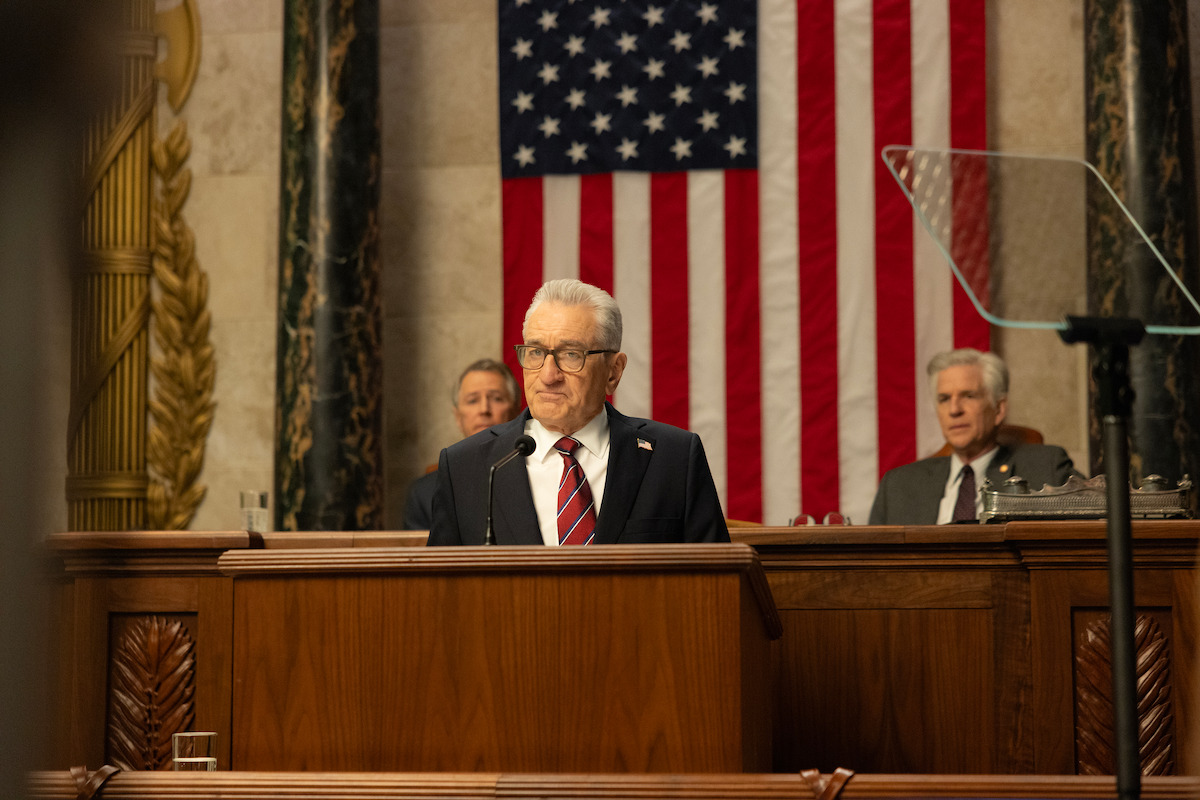
“George Mullen is a character who inspires a great deal of confidence and projects a great deal of strength and integrity at first glance. And when you see Robert De Niro in a suit and tie, with an American flag pin on his lapel, he immediately strikes you as the president we all wish we had,” Oppenheim said. “But then beneath the surface of that, you have somebody who is deeply, emotionally complex. Obviously, Robert De Niro is one of the great actors of our time, and he’s able to summon all of that complexity.”
Zero Day is De Niro’s first TV series that he both stars in and executive produces, and the renowned actor was extensively involved in shaping what viewers see. From reading scripts to sharing insights, as someone well versed in politics, De Niro brought “a wealth of knowledge and invaluable relationships that helped create a sense of authenticity in portraying how the government would respond to a cyberattack,” executive producer Jonathan Glickman said.
Newman was impressed by De Niro’s stamina during the production’s long filming schedule. All six episodes were shot in 103 days. “I think he worked as much as you might if you worked every day on a big movie — which no one can do,” Newman says.
Meanwhile, Lesli Linka Glatter, who executive produced and directed all six episodes, lauded De Niro as a collaborative partner who “asks the most insightful questions” and “digs so deeply into the story and every aspect of his character.”
“Not to mention,” Glatter added, “he is an absolute inspiration to everyone around him.”
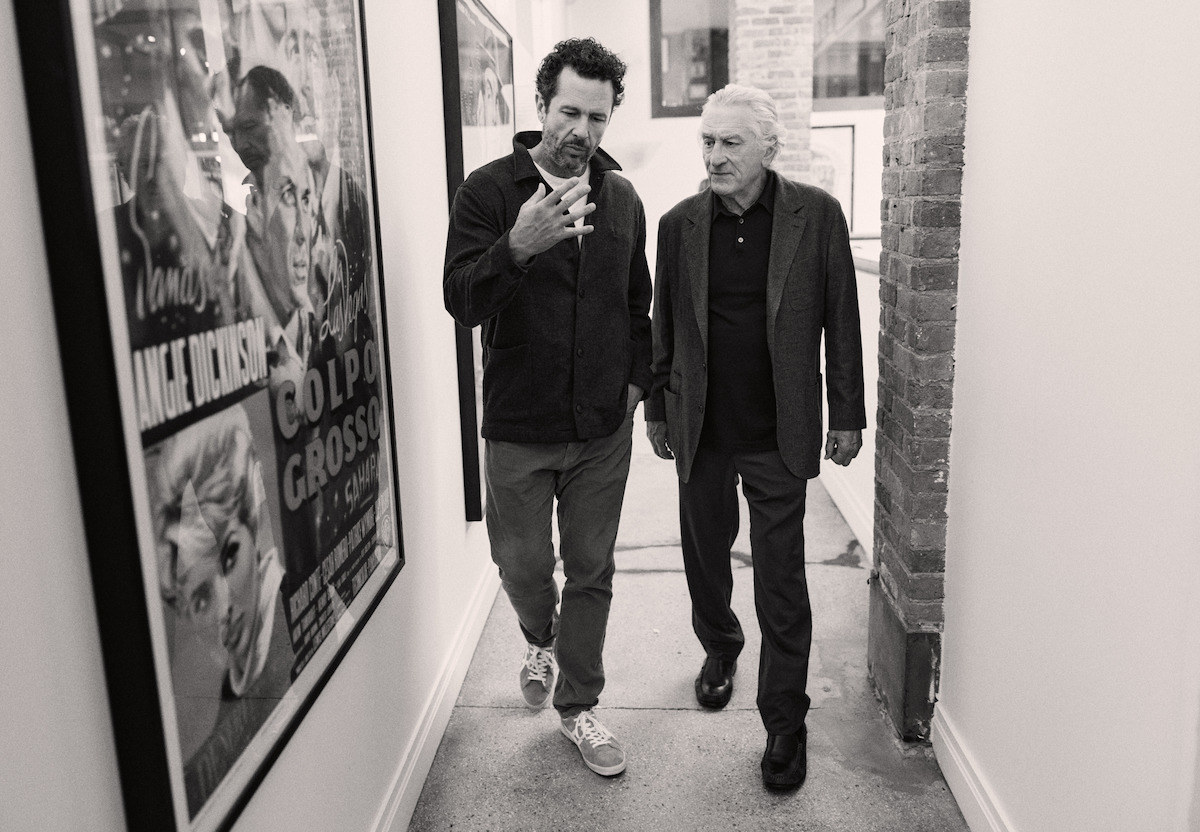
So, exactly how did De Niro become involved with Zero Day? Read on for an illuminating conversation between De Niro and Newman, where the executive producers discuss their first meeting, what drew De Niro to the role, and more.
Eric Newman: Very briefly for fans who don’t know yet, how did you first become involved in Zero Day?
Robert De Niro: I was talking to my agent, Josh Lieberman, and we were talking about doing something in New York so I could stay at home. He told me about you, and then we met out in Los Angeles. And then you guys came up with this whole thing, I guess a year later, and it was really good.
Newman: We met at Shutters in LA. It was a thrill. We had just actually come from New York, and I was with Noah Oppenheim, and Noah was telling me about this story they couldn’t nail down yet, and that story would become Zero Day.
De Niro: I was kind of surprised that you came up with this thing so quickly.
Newman: I had a list of things that I wanted to run by you. I mean, really I just wanted to have dinner with Robert De Niro, and that would’ve been enough. And then we ended up with this show, which is great. This is the first TV series that you’ve both executive produced and starred in, correct?
De Niro: Yes.
Newman: And, other than my persuasiveness, why this particular show? Why this story?
De Niro: I forget exactly what we talked about at Shutters, but we did talk about doing a project and so on. And as I remember it, I didn’t know how specific it was, but we left thinking that you were going to come up with something. And then, slowly, you’d send me the material, and it was good.
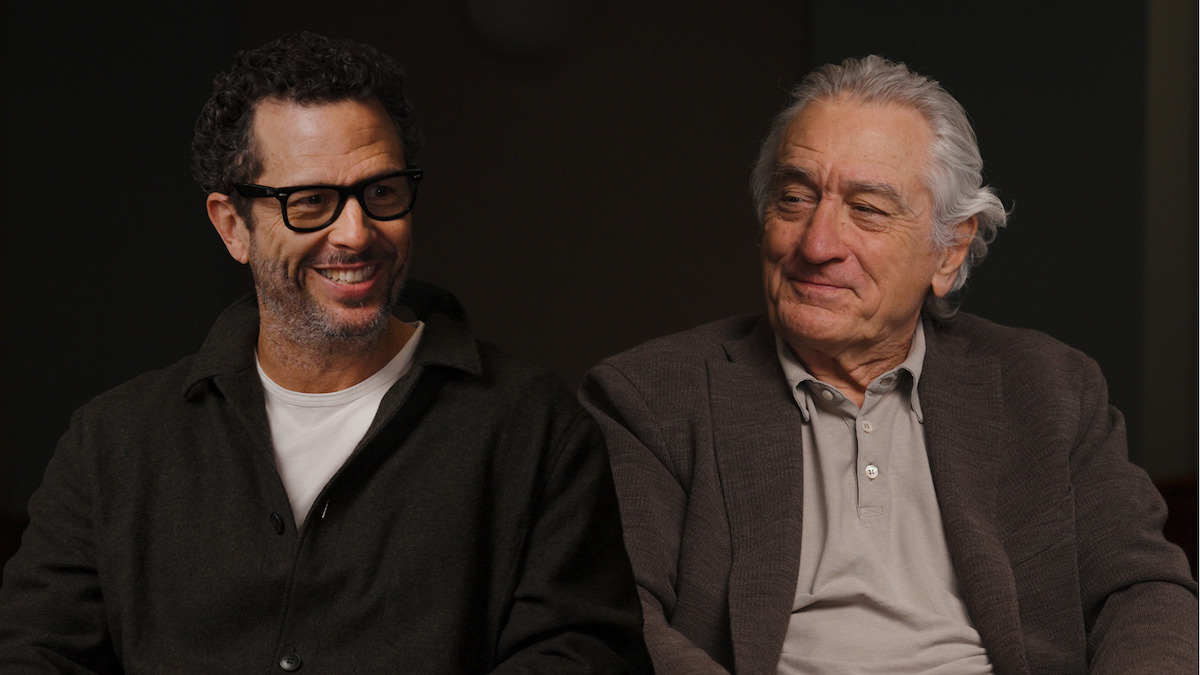
Watch Robert De Niro and Eric Newman Discuss Zero Day and the Explosive Ending
Newman: It was a great process with you. You go very deep on research and preparing for a role. And obviously, this was an area of great interest to you, the political arena. The times that we live in are even different now than when we made the show. How did you approach your research for this role? And is there anything specific that you did?
De Niro: No, I felt that I was up to speed on what was happening in this world. It wasn’t something that I had to do research about, or about the physicality of the character and so on. I was basically myself. And I felt that the writing was really good, clear, and plus, it was a thriller, so there was a lot of information to get out, and that is a thing in itself. That’s a task, if you will, to get the information out, and hopefully to get it out so that the audience doesn’t feel that you’re just getting it out, but that you have to get it out — it’s the only way to do it. And so that was it, but it was really well written.
Newman: Noah Oppenheim, my partner on this, comes out of the news world. You’ve been an activist for a long time and have had a lot to say about that. Was part of the appeal that you could make some political comment on the world we’re in?
De Niro: Yeah, in some way, but what I liked was the texture of it was real and written by people, like Noah and you, who knew what it was, who knew what the subject was, where the twists and turns were, and so on. And so that’s a lot of it already. And I’m protected by the writing being so smart.
Newman: You always approach your work from the point of view of the character, and George Mullen is a complicated guy. Where is he in his life when this story starts?
De Niro: He’s writing his memoirs, if you will, and trying to get that done. I was made aware — I didn’t know this, I think Noah told me — that when you are not the president anymore, there’s kind of a vacuum. You find yourself without anything to do in a lot of ways. So that was interesting.
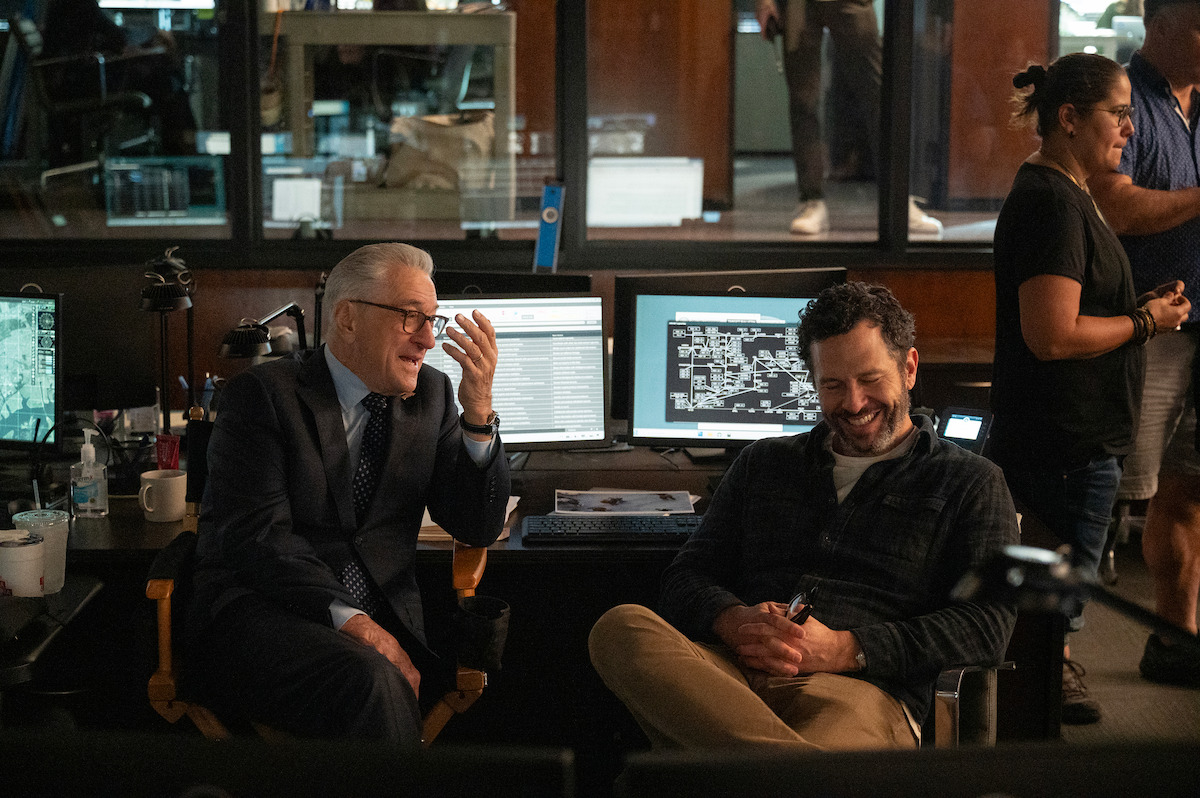
Newman: Given that we did want to say something about what the world needs, how does this character, his dilemma, and the decisions that he makes in the story, reflect the world that we live in right now and maybe perhaps a bit of wishful thinking on our part that someone could have that level of integrity?
De Niro: That was his whole thing. Just tell it straight. Don’t dodge anything. Don’t play games. Be honest about what’s going on so that the public knows what’s going on. There’s no mystery, no craziness, no dodging of anything — unless it’s for valid safety reasons. So that was the spine of my character in the show.
Newman: You’d mentioned earlier that the opportunity to film in New York City was important to you. How was the experience?
De Niro: It was good. Shooting in New York is what I wanted. It was great to work in Steiner Studios. That was terrific. And then we went to shoot on location outside the city, it was all very nice, to be at home for those five, six months.
Newman: When you approached the character, was it possible for you to separate out your own feelings, your political leanings?
De Niro: Well, no. I was trying to align what Mullen was doing with what I also felt, but it very much was correct and easy and right to do in that way, because we all understood what we wanted to do with the character. So it wasn’t something that was made complicated.
Newman: Politics are an important part of this story, but specific party affiliations are hardly mentioned or defined, and that was an intentional choice that we made. Talk a little bit about that element of playing George Mullen.
De Niro: George Mullen was a respected president. Had a good record, and that’s one of the reasons that Angela’s character picked him. He had a reputation. He was a prosecutor before. He could be tough when he needed to be, but do it in a way that was appropriate. And so, when he gets criticized for going too far, that’s another part of it. But he felt he had to, and it depends on how you look at it, because it was a desperate, dire situation, and they had to get answers.
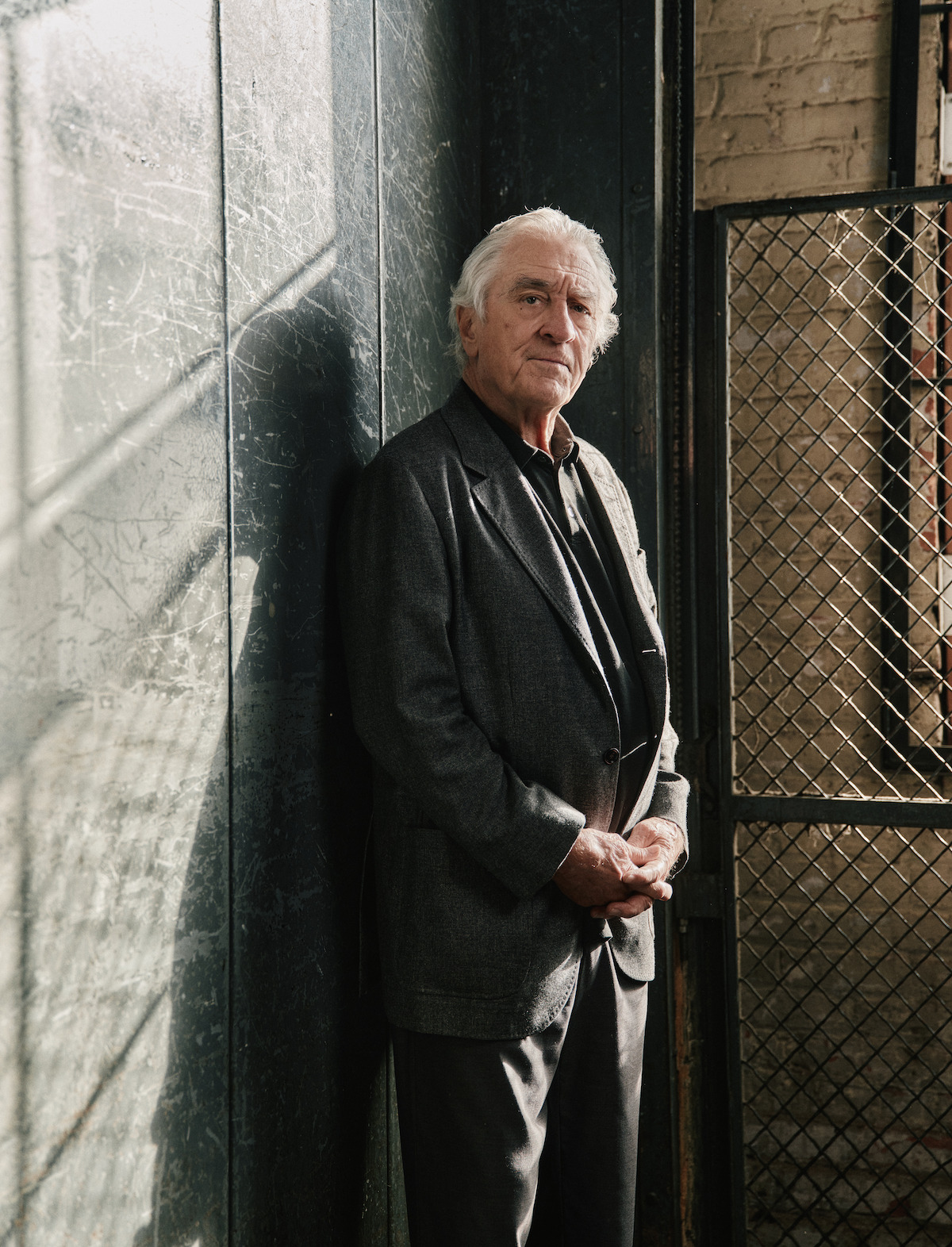
Newman: And it felt like he was a product of an era where the two parties didn’t hate each other so much, which was baked into the idea of choosing a guy that everybody still respects and likes. And when he says it’s so, it is so.
De Niro: Yeah, they know that he’s being straight and not being devious.
Newman: You’ve starred in some amazing thrillers. What elements of this particular story do you think make it a great fit thriller?
De Niro: Well, I think again, it’s the people who created it — you, Noah Oppenheim, and Michael Schmidt. Everybody knows the world, and so they have a lot of information. You’re not doing things and saying, “No, that doesn’t sound right, doesn’t feel right, it’s not believable.” It all felt very believable. And on top of the technical consultants, I felt very comfortable with that. I felt comfortable that it was close to what it could be.
It’s grounded. That makes you feel good. I felt good knowing that I was with people who, if I asked you or Noah or Mike a question, you’d give me what it was and where we could go. And that was great.
Newman: What is most important to you as an actor to get across in your portrayal of Mullen?
De Niro: Well, all the things that we talked about. That you could see his dilemma. You could see what he’s going through. You could see when he has to cross a line, why he’s doing it. You can either agree with it or not. But again, it’s all within the parameters and guidelines of what could happen. And that, to me, was most important. We don’t want the audience saying, “I don’t believe that could happen.” It was always on track.
Newman: One of the themes that we touch on is the danger of absolute power. A plot point in our show is that the Constitution is basically put on hold. How dangerous do you think that is?
De Niro: It can be dangerous. And that was one of the things that my character was accused of, stepping over the line, going too far. And again, the rationale was that we need to do this in order to get some answers. The mystery part of it was what he personally was going through mentally and personally, and what that meant.
Newman: Your fellow executive producers, myself included, are a pretty politically savvy bunch. Noah Oppenheim ran NBC News. Mike Schmidt is a Pulitzer Prize-winning journalist for The New York Times. Lesli Linka Glatter is a veteran of Homeland and The West Wing. Jon Glickman’s father was secretary of agriculture under Clinton. We also had a number of great consultants. How important was that to the collaboration behind, and the authenticity of, the show?
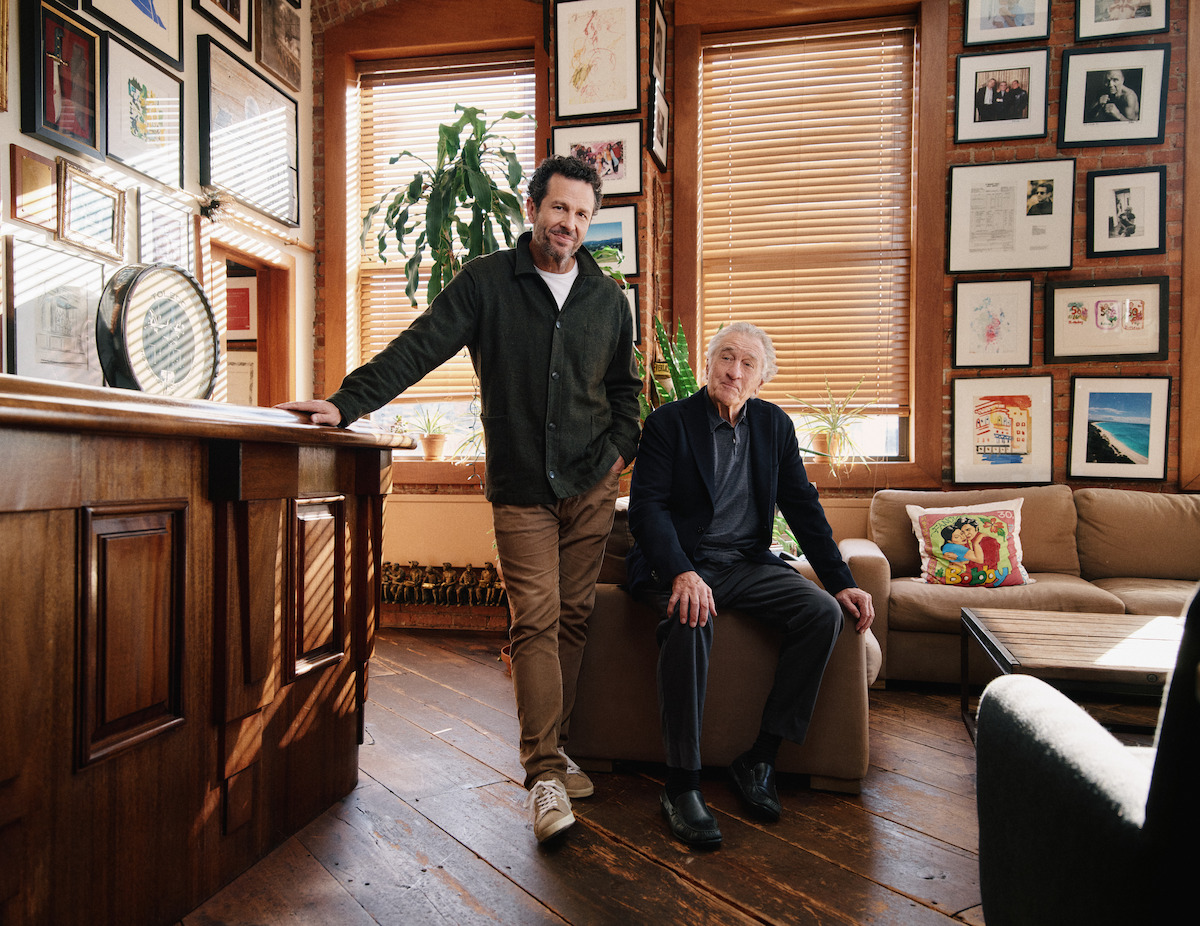
De Niro: It was important because we had to know that if we were going off the rails anywhere, we had a team that could help us get back on track. And so we’d ask questions and make sure that we were on the right track.
Newman: We have an amazing cast, all of whom I believe signed on to work with you. The opportunity to spar with so many different unbelievable actors, and obviously you’ve done that many times, but to have them all in one place, what did that feel like?
De Niro: Angela Bassett, Dan Stevens, Connie Britton, Lizzy Caplan, Matthew Modine, Joan Allen, Jesse Plemons, Gaby Hoffmann, all great. Jesse and I had worked on Killers of the Flower Moon and The Irishman, so I was very happy that he was involved.
Newman: Do you think the world of our show is scarier than the world that you and I are in right now?
De Niro: Right now, our actual world is scarier.
Newman: There are a lot of timely elements and themes in the story. In fact, some of them may have been ahead of their time, given that we feature a president experiencing cognitive issues. We have a Black woman as president. We have a sociopathic billionaire trying to meddle in the government. I can’t say that we were predicting anything, it just worked out that way. What are some of the themes, and what are some of the debates that this show might touch on and perhaps spark?
De Niro: You just said it. Those things would be, today, based on what’s going on now, parallels that people will see when they watch it.
Additional reporting by Keely Flaherty.
Stream Zero Day now.
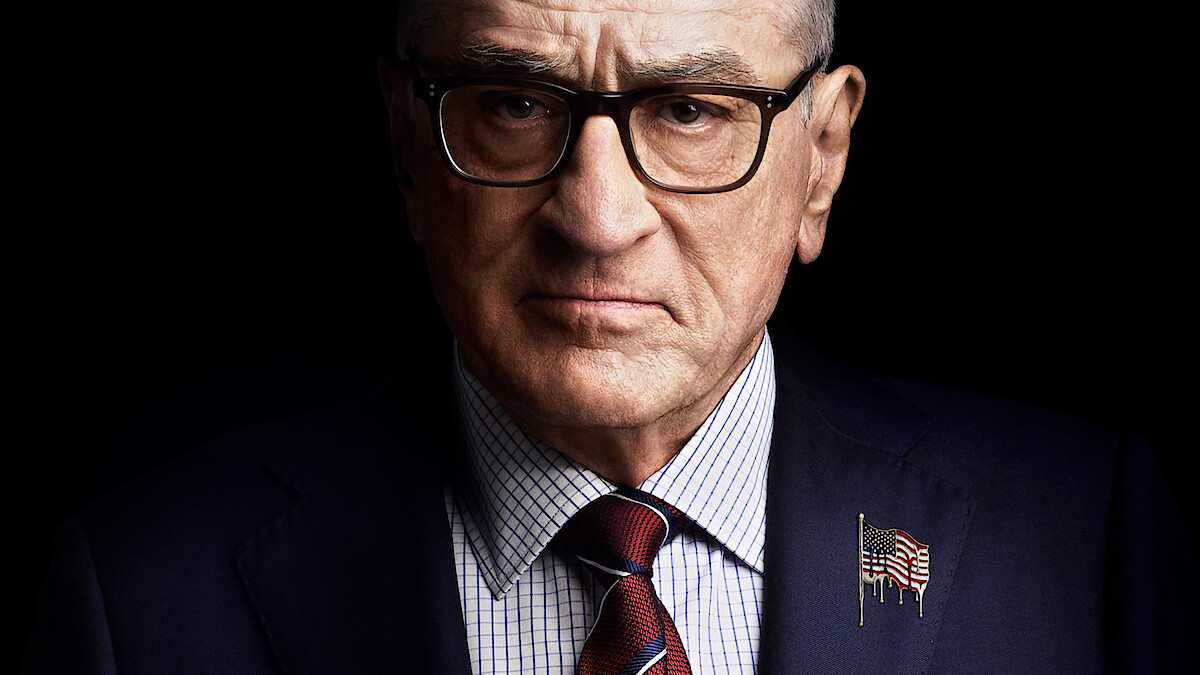
Watch the Zero Day Trailer